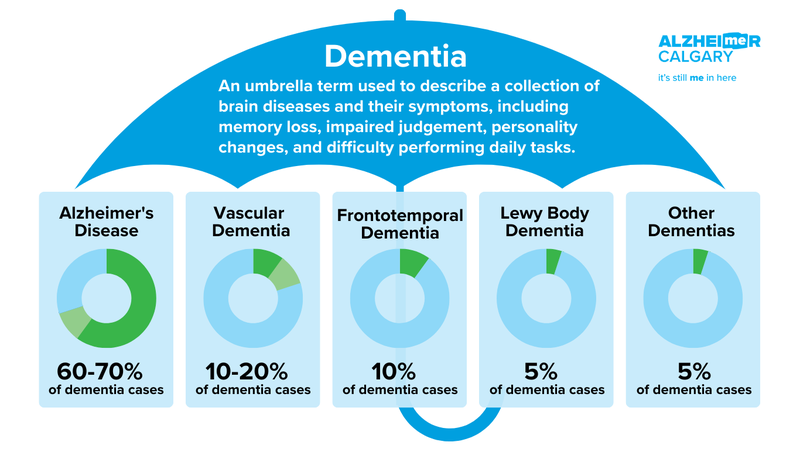
Understanding the Medical Reality
Dementia results from physical brain diseases that damage the connections inside the brain. These aren't single conditions, but rather a diverse group of over 100 different brain diseases that can cause dementia symptoms. What makes these diseases particularly challenging is that they are both progressive - meaning their effects increase over time -and degenerative, which means the actual brain tissue loses volume and shrinks in size.

Beyond Memory Loss
While memory problems are often the first sign people notice, dementia affects far more than just our ability to remember. The brain controls everything we do, think, and feel, so dementia can impact virtually any aspect of daily life.
Cognitive Functions Affected by Dementia
Memory and Recognition
- Difficulty remembering recent events, conversations, or appointments
- Trouble recognizing familiar people, places, or objects that were once well-known
Communication and Language
- Challenges understanding spoken or written language
- Difficulty finding the right words or following conversations
- Changes in speech patterns or clarity
Thinking and Decision-Making
- Impaired judgment and decision-making abilities
- Reduced clarity of thought and reasoning
- Difficulty with planning and organizing tasks
Daily Living Skills
- Struggles with familiar tasks like cooking, driving, or managing finances
- Confusion about how to use common objects or follow familiar routines
Behavioural and Physical Changes
Personality and Behaviour Dementia can cause significant changes in personality, mood, and behaviour. Someone who was once outgoing might become withdrawn, or a typically calm person might experience increased agitation or confusion.
Physical Abilities
- Problems with visual and spatial processing, making it difficult to judge distances or navigate spaces
- Changes in physical movement and coordination
- Difficulty with balance and motor skills
The Individual Experience
It's important to remember that dementia affects each person differently. The specific symptoms, their severity, and how quickly they progress can vary significantly depending on the type of brain disease, the individual's overall health, and many other factors. While dementia is a serious diagnosis, understanding these conditions helps us provide better care, maintain dignity, and focus on what remains possible rather than what has been lost.
How is dementia diagnosed?
Currently, there is no single conclusive test for Alzheimer's disease or any other type of dementia. Diagnosis requires a thorough investigative process. Understanding the process can help reduce anxiety and ensure you get the comprehensive care you need.
A Process of Elimination
The diagnostic journey involves multiple steps designed to rule out other treatable conditions that can cause similar symptoms. Many conditions can mimic dementia symptoms, including depression, vitamin deficiencies, thyroid problems, sleep disorders, and reactions to medications. The encouraging news is that some causes of memory and thinking problems can be treated.
What to Expect During Assessment
The diagnostic process is comprehensive and typically includes several components:
Medical History Review Healthcare providers will conduct an in-depth review of your medical history, including current medications, past illnesses, and family health history. They may speak with family members or close friends who can provide additional insight into changes in thinking, behaviour, or daily functioning.
Physical Assessment A thorough physical examination helps identify any underlying health conditions that might be contributing to symptoms.
Laboratory Tests Blood tests check for vitamin deficiencies, thyroid function, blood sugar levels, and other metabolic conditions that can affect thinking and memory.
Specialized Assessments Imaging tests such as CT or MRI scans can reveal brain changes, while cognitive assessments evaluate different aspects of thinking, memory, language, and problem-solving abilities.
Working with Specialists
Your family doctor may refer you to specialists such as neurologists, geriatricians, or psychiatrists who have specialized training in diagnosing and treating dementia. These specialists have additional tools and expertise to conduct more detailed assessments.
A diagnosis of "probable dementia" is typically made only after healthcare providers have systematically excluded all other potential causes of the symptoms. In Alberta, you have the right to request a referral to a specialist if you feel your family doctor may not fully understand your concerns or be able to provide the support you need during this process.
What is the difference between normal aging and dementia?
There are key differences between “normal aging” and dementia, including frequency and context of occurrences, and if the observed change is out of character for the individual.
What is the difference between dementia and Alzheimer's?
Alzheimer's and dementia are not interchangeable words. There are some important differences. Alzheimer’s disease is the most common cause of dementia symptoms (60-70%) out of 100+ different brain diseases that can cause dementia symptoms.
Think about a forest... Alzheimer's disease could be compared to pine trees in an Alberta forest. They are the most common trees in many Alberta forests, but many forests contain birch trees, poplars, willows, oaks and others. Each tree species has its own characteristics and growth patterns, just as different types of dementia have their own symptoms and progression paths. Some dementias affect mostly memory, others affect things like language, personality, judgment, and planning.
Dementia Myths & Facts
Myth: Dementia is usually hereditary.
Fact: Most of the time, dementia is not inherited. Anyone can be affected.
Myth: Only older people get dementia.
Fact: Age counts, but younger people can get it too.
Myth: Life can’t be enjoyable following a dementia diagnosis.
Fact: Many people with dementia continue doing things they love for many years, and those activities can be adapted as time goes on. All people are affected differently and each person’s experiences are unique.
Is there a cure?
Unfortunately, at this time, there is no known cure for the brain diseases that cause dementia, but medications are available to help control the symptoms.
